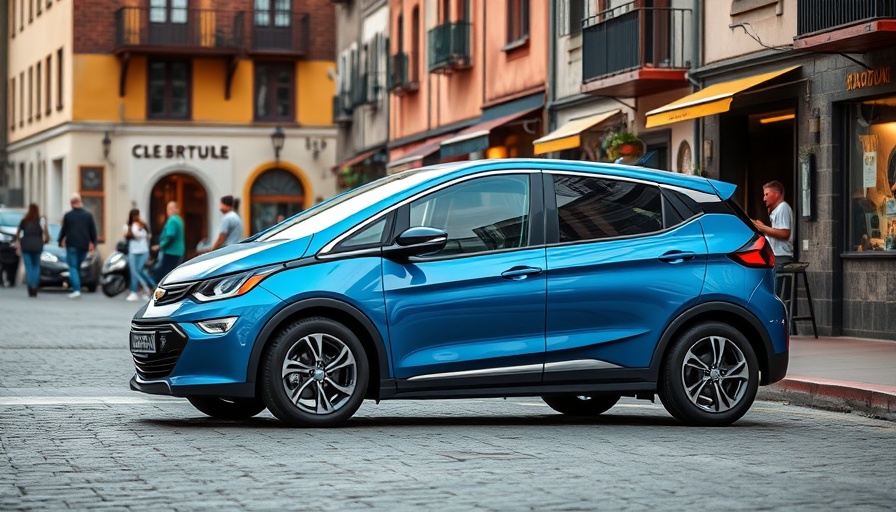
Chevrolet’s Bolt: An Affordable Revolution in Electric Vehicle Market
When Nissan announced its revamped Leaf as the most affordable electric vehicle on the market, Chevrolet was quick to undercut that claim with the new Bolt. Set to launch at an astounding price point of $29,990, the Bolt EUV, now simply named Bolt, is positioned not only to capture the attention of budget-conscious consumers but also to redefine what affordability means in the EV landscape.
Significant Upgrades Mark the Return of the Bolt
The 2027 Bolt is equipped with impressive upgrades, including a 65-kWh lithium-iron-phosphate (LFP) battery and peak charging speeds of 150 kW, marking a drastic improvement over the previous model's 55 kW maximum. With the ability to charge from 10% to 80% in just 26 minutes, this model offers a user-friendly experience that aligns with fast-paced lifestyles.
Competition and Market Impact
With an estimated range of 255 miles, the new Bolt competes directly against the Nissan Leaf and holds its ground against more expensive models like Tesla's Model 3 and Model Y. While those models start at well over $38,000, Chevrolet's Bolt remains a strong contender in a rapidly evolving market. As automakers such as Ford and newcomers like Slate prepare to release budget-friendly electric options, the emphasis on affordability remains paramount in the industry's future.
Anticipated Features and Technology Innovations
In addition to its affordability, the Bolt boasts modern technological comforts, including an 11.3-inch touchscreen and an 11-inch digital instrument cluster. The vehicle is not without its quirks; however, the omission of Apple CarPlay might be disappointing for some tech-savvy users. Bidirectional charging capability and optional Super Cruise feature further enhance its value proposition, making the Bolt not just an affordable option, but a well-rounded contender in the EV segment.
The Future of Budget Electric Vehicles
The reintroduction of the Bolt reinforces Chevrolet's commitment to affordability as the automotive industry faces challenges with rising costs and evolving consumer expectations. As tax credits fade and competition heats up, this resurgence is not just a boon for Chevrolet; it gives hope to consumers eager for accessible electric options. By bridging the gap, the 2027 Bolt could likely lead new trends toward a greener, more affordable automotive future.
 Add Row
Add Row  Add
Add 




Write A Comment